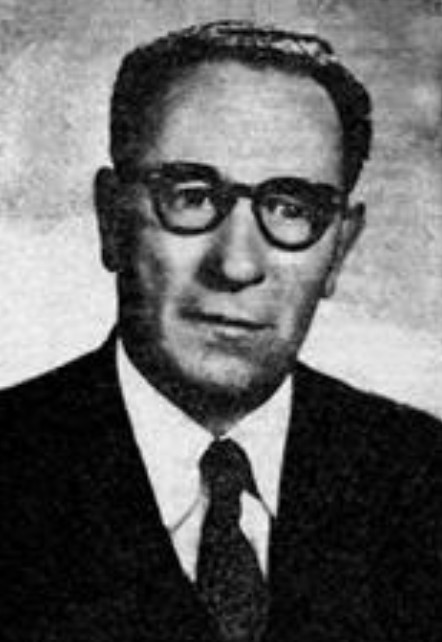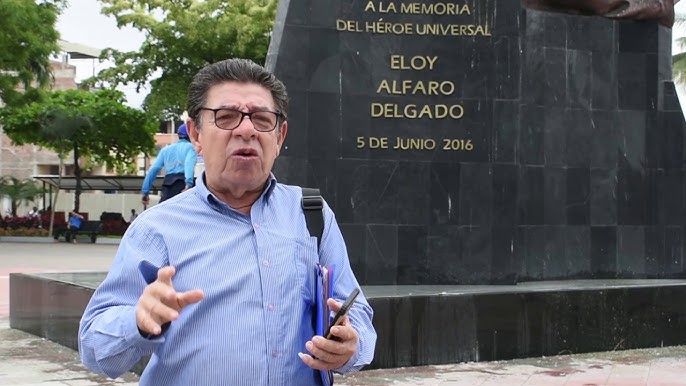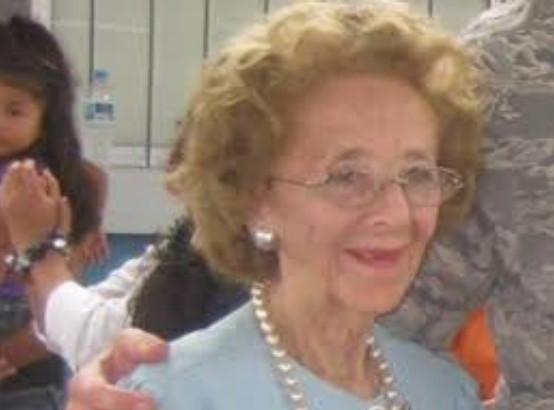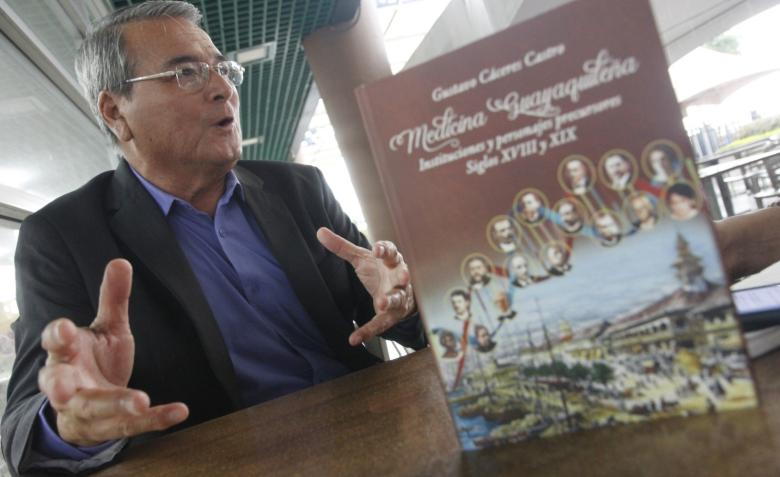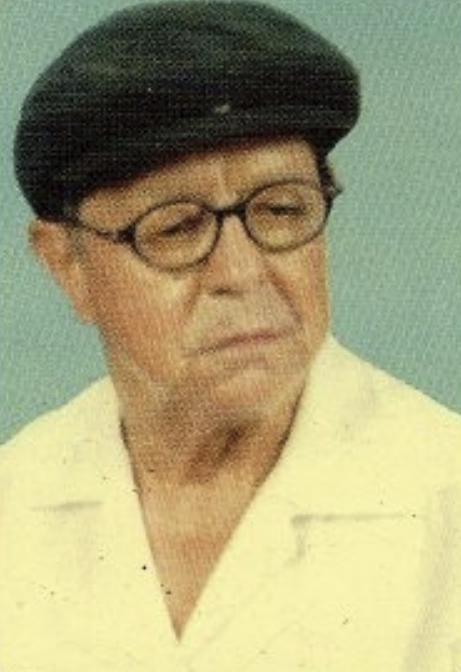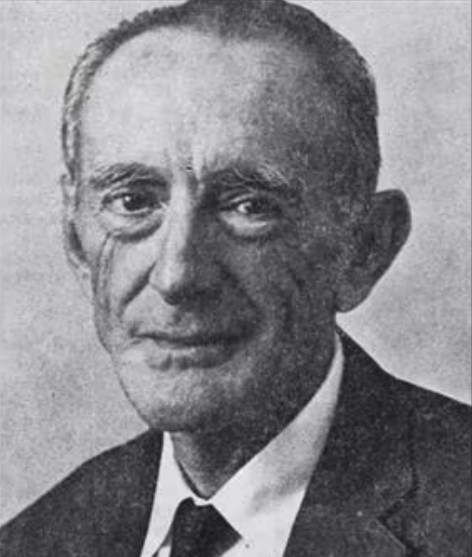Luis Aníbal Sánchez (Quito, February 3, 1902 – Quito, February 14, 1922) was an Ecuadorian writer and modernist poet celebrated for his pioneering use of prose poetry. From an early age, Sánchez immersed himself in Ecuador’s literary circles, joining forces with Jorge Carrera Andrade and César Ariosto Orellana to co-found the César Borja Literary Society at Colegio Mejía in Quito. This student group, composed of high school peers, was devoted to literary innovation and expression, becoming a hub for young, revolutionary voices. Sánchez’s most notable work, Palabras con Flordelina (1920), epitomized his intense and emotive prose poetry, complemented by an epilogue penned by Gonzalo Escudero Moscoso. His contributions extended to Ecuadorian literary magazines such as La Idea, Crepúsculo, and Los Hermes, and he also wrote the introduction to Escudero’s Los poemas del arte. Despite his untimely death at just 20 years old, Sánchez’s literary legacy endures, marking him as a key figure in the evolution of Ecuadorian modernist literature.
Continue reading “Luis Aníbal Sánchez”Posts
Miguel Ángel Zambrano
Miguel Ángel Zambrano (Riobamba, 1898 – Quito, 1969) was an Ecuadorian poet, university professor, and social reformer whose work bridged literary and political spheres. Known for his late start in publishing, Zambrano released his first poetry collection, Diálogo de los seres profundos, at age 58, earning acclaim for its philosophical depth and apocalyptic tone. His poetry, which includes Biografía inconclusa (1961) and Mensaje (1968), explores themes of existentialism and social justice, resonating with Ecuador’s indigenous and working-class struggles. As a professor at the Central University of Ecuador, he also founded the Institute of Social Research and co-authored Ecuador’s 1938 Labor Code. His legacy endures through posthumous collections and preserved recordings, cementing his status as a key figure in Ecuadorian literature and social thought.
Continue reading “Miguel Ángel Zambrano”Carlos Alejandro Ardila
Carlos Alejandro Ardila Ardila (Portoviejo, Ecuador, August 23, 1951), often referred to simply as Carlos Ardila, is an Ecuadorian poet and cultural promoter, widely known as “El Poeta del Pueblo” for his accessible and community-focused poetry. Ardila began writing in his teens, and his career now spans over five decades, with numerous published works, including Poesía Eterna (2002), Hablemos de Amor (2011), and A Mi Manera (2017), the latter archived in the prestigious Archivo de Indias in Seville, Spain. His poetry reflects themes of romance and social awareness, capturing the lives and struggles of his community in Manabí.
Continue reading “Carlos Alejandro Ardila”María Alejandra Almeida
María Alejandra Almeida Albuja (Ibarra, Ecuador, February 16, 1992) is an Ecuadorian author and lawyer known for her contributions to children’s and young adult literature. She began her writing career at age 11 with her first published story, and has since authored numerous acclaimed books, including La habitación secreta (2014), La esfera dorada (2017), and El pez más feo del mundo (2020), many of which have received prestigious awards like the Premio Nacional Darío Guevara Mayorga. In addition to her literary work, Almeida holds a law degree from the Pontificia Universidad Católica del Ecuador and a postgraduate degree in public policy research from FLACSO, balancing her time between human rights advocacy and writing.
Continue reading “María Alejandra Almeida”Angélica Flores Zambrano
Angélica Flores Zambrano (Manta, circa 1919 – ibidem, April 11, 2013) was a celebrated Ecuadorian poet, writer, and educator known as “La Novia de Manta.” She contributed significantly to local culture by authoring hymns for various schools and organizations in Manabí. Flores also contributed articles to publications such as El Universo, El Telégrafo, El Mercurio, El Diario Manabita, and Recado Cultural de Portoviejo. She published a book of poetry and prose, Cartas de María (2001). Her legacy includes numerous awards, and a school in Manta is named in her honor.
Continue reading “Angélica Flores Zambrano”Jorge Centeno Medranda
Jorge Centeno Medranda is a foundational figure in Manta’s literary and cultural history, celebrated for his work as a poet and cultural advocate, especially throughout the 1970s. As a founding member of the Grupo Cultural Manta, established in 1965, Centeno Medranda was instrumental in shaping the city’s poetic identity, participating in public readings and literary events alongside other prominent poets, such as Josefa Mendoza de Mora and Angélica Flores Zambrano. Known for his dedication to poetry as an autonomous art form with a focus on language and intellectual depth, he contributed significantly to Manta’s vibrant cultural scene. His influence also extended to educational initiatives, notably through his role in the founding of Unidad Educativa Cinco de Junio, reflecting his commitment to both literary and community development in Manta.
Continue reading “Jorge Centeno Medranda”Gustavo Cáceres Castro
Gustavo Cáceres Castro (Guayaquil, Ecuador, April 1954) was a prominent Ecuadorian physician, historian, and author known for his contributions to the history of medicine in Ecuador. A graduate of the University of Guayaquil’s Faculty of Medicine, he practiced at the Hospital Teodoro Maldonado Carbo and later taught embryology at his alma mater. Cáceres authored several influential works on Ecuador’s medical heritage, including Diccionario Básico de Terminología y Personajes de la Medicina Ecuatoriana (1989) and Medicina Guayaquileña (2023), which explore the evolution of medical practices and figures from the 18th and 19th centuries. His interests extended to poetry, winning him a first prize from the Municipality of Guayaquil in 1990, and his poem appeared in the anthology Cantos a Guayaquil (2011). Now retired, he remains a regular lecturer at the Archivo Histórico del Guayas, where he shares his research on traditional and scientific medical practices.
Continue reading “Gustavo Cáceres Castro”Raúl Pacheco Pérez
Raúl Pacheco Pérez (Quito, Ecuador, 1963) is an Ecuadorian editor and literary scholar dedicated to preserving and promoting Ecuadorian literature and culture. Based at the Centro Cultural Benjamín Carrión (CCBC) in Quito, he has overseen significant editorial projects, including Ensayos Reunidos by Alfredo Pareja Diezcanseco (2010). Pacheco Pérez is also active on the editorial boards of literary magazines País Secreto and Ruido Blanco, and he co-edited the influential Antología de Poesía: Ecuador Siglo XX with Iván Carvajal. His work has included serving as a juror for the “Festival de la Lira.” Through his scholarship and editorial work, Pacheco Pérez is a key figure in Ecuador’s literary community.
Continue reading “Raúl Pacheco Pérez”The Montuvio by Jerónimo Orión Llaguno Márquez
The Montuvio by J. Orión Llaguno was originally published in 1926 and offers a vivid portrayal of the montuvio, an iconic figure of Ecuador’s rural landscape. Through a blend of prose and verse, Llaguno explores the customs, lifestyle, and character of the montuvio, likening him to the guajiro of Cuba and the llanero of Venezuela. This evocative piece reflects Llaguno’s deep connection to the culture and identity of the Ecuadorian countryside, capturing the spirit of its people and their ties to the land. My translation is followed by a glossary, an Afterword, and the original Spanish version.
Continue reading “The Montuvio by Jerónimo Orión Llaguno Márquez”Max Puertas Alarcón
Max Puertas Alarcón (Loja, Ecuador, December 17, 1935 – Machala, Ecuador, July 22, 2016) was an Ecuadorian lawyer, judge, writer, and cultural figure. Known for his integrity in the legal field, he held various roles, including judge, where he was celebrated for his ethical standards. He was also an active contributor to Ecuadorian literature, authoring works such as Historia del pequeño Miguel Ángel (2002), an autobiographical work depicting early 20th-century life in Loja and Portovelo.
Continue reading “Max Puertas Alarcón”Jenny Romero Pape
Jenny Romero Pape (1930 – Unknown) was an Ecuadorian poet and cultural figure. Best known for her poetry collection La rosa de cristal (1958), she explored themes of love, solitude, faith, and patriotism. In 1968, she also published Por un mundo mejor, a work linked to Ecuadorian essays and Catholicism. Romero Pape was also active in the cultural scene of Guayaquil as a member of the Agrupación “Cultura y Fraternidad” (Culture and Fraternity Association). She wrote the lyrics for the anthem of the “Nueve de Octubre” National High School, created during a competition, with music composed by Divina Icaza Coronel.
Continue reading “Jenny Romero Pape”Patricia Velásquez de Mera
Patricia Velásquez de Mera, formerly Patricia Velásquez Villacís (Guayaquil, Ecuador, 1951), is an Ecuadorian poet, novelist, and visual artist. She began her literary career with the novel El Porvenir de Aniata (1996) and later published poetry collections such as Entre dos ríos (2001) and Mapa de amor y de dolor (2007) under her married name, Patricia Velásquez de Mera. In addition to her literary accomplishments, she embarked on a painting journey at age 45, adding a new dimension to her artistic expression. Often using the pseudonym “Dagor” for her online poetry and art, Velásquez de Mera’s work explores themes of love, existence, and human emotion, seamlessly blending her literary and visual artistry into a unified creative vision.
Continue reading “Patricia Velásquez de Mera”Efraín Pérez Castro
Efraín Leonidas Pérez Castro (Guayaquil, November 16, 1912 – May 2, 2001) was an Ecuadorian writer, journalist, and columnist. As the son of Ismael Pérez Pazmiño, founder of El Universo, he played a key role in the newspaper’s development alongside his brothers. Pérez Castro was known for his insightful editorial columns and his contributions to Ecuadorian literature, publishing works such as Prosa y verso (1960). He was also an active member of cultural organizations like the Círculo de Periodistas del Guayas and Casa de la Cultura Ecuatoriana. In 1992, he was awarded the National Order of Merit for his contributions to Ecuador’s cultural landscape.
Continue reading “Efraín Pérez Castro”Lucía Gómez de Bracho Urdaneta
Lucía Gómez de Bracho Urdaneta (1940 – Unknown) was a diplomat, writer, and poet. She held a doctorate in diplomacy and was renowned for her expertise in maritime law, particularly through her book Biografía del Mar (1977), which earned the First Latin American Prize in Maritime Law. She also authored the historical work Tratado de Guayaquil frente a la historia and published poetry, including the collection Transparencia. Gómez de Bracho Urdaneta served as Subdirector of the Regional Office of the Ministry of Foreign Affairs and wrote the lyrics for the hymn of the Asociación Ecuatoriana de Radiodifusión (AER).
Continue reading “Lucía Gómez de Bracho Urdaneta”Ana María Goetschel
Ana María Goetschel Garzón is an Ecuadorian historian and professor emerita at FLACSO Ecuador. She holds a Ph.D. in Social Sciences from the University of Amsterdam and a Master’s in Andean History from FLACSO Ecuador. Her research focuses on the history of women, education, and gender studies, particularly exploring the origins of feminism and the role of punitive action in Ecuadorian history. She has authored several influential works, including Moral y orden: La delincuencia y el castigo en los inicios de la modernidad en Ecuador (2019) and Cartas Públicas de Mujeres Ecuatorianas (2013), and has received numerous accolades, including the Premio Manuela Sáenz in 2019.
Continue reading “Ana María Goetschel”
